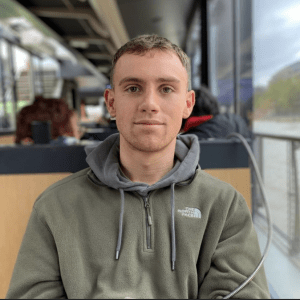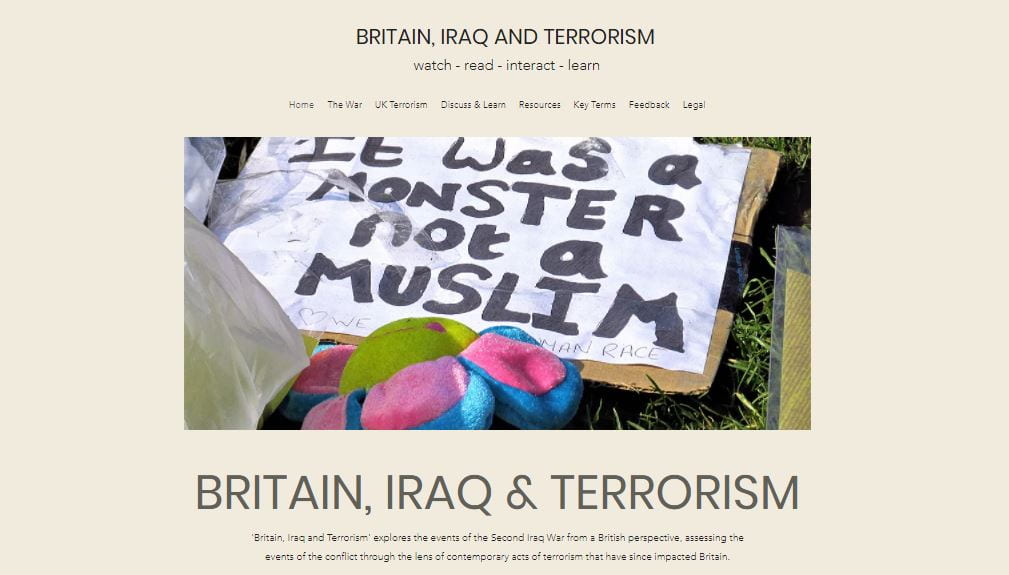In this series, Dr Jessica Moody, unit co-ordinator of the third year Practice-Based Dissertation option, interviews students about their projects and experiences of this unit. The Practice-Based Dissertation was first introduced at Bristol in 2020-21 and enables students to produce a practical, public-facing ‘public history’ output as well as a 5000 word Critical Reflective Report.
In this interview, Jessica talks to Josh Hillman about his project.
JM: Let’s start from the beginning, what made you choose the Practice-Based Dissertation over the standard Dissertation?
JH: Whilst I’ve mostly enjoyed essay writing at University, the prospect of undertaking a piece of work that enabled me to showcase a different set of skills really appealed to me. Also, the possibility of producing a project that could help educate and influence people outside of University gave a purpose beyond merely completing my degree, which really motivated and inspired me.
JM: Could you tell us about your public history project?
JH: The project I created was a website about the Second Iraq War and British Terrorist events. The site combines the use of short documentaries, information pages, interactive quizzes and learning tools in order to educate people about the links between British action in Iraq and events of Islamic extremism. The site’s main goal is to exist as an online ‘lesson’, meaning the content is presented in a format whereby the site user is guided through the site, building their knowledge and understanding as they interact with the content.
JM: Why did you want to undertake this project?
JH: As well as these events and issues being particularly interesting to me, my project aims to achieve multiple objectives. Firstly and most importantly, it counters racist and Islamophobic narratives that currently exist in society by exhibiting how British military and political failures have contributed to creating a society whereby the risk of Islamic terrorist attacks are a reality. The project also contributes to the field of history by placing the Second Iraq War into ‘history’, as we reach a time where it becomes removed from current affairs. Doing so is important due to both secondary school and University students no longer benefitting from having a lived experience of the events.
JM: What did you enjoy most about the Practice-Based Dissertation?
JH: Having the ability to work on a project that led me to using many different skillsets (as well as learning lots of new ones) first and foremost made the project extremely enjoyable. The Practice-Based Dissertation also gives you much more freedom than the standard 10,000-word dissertation. Whilst there’s still the requirement to produce an output, how you go about that is completely up to you. The combination of this freedom and this new way of working really motivated me and made me feel like I was working more like I would in a job as opposed to how people traditionally work at University, and as a final-year student that feeling was the most enjoyable thing about doing this style of dissertation.
JM: What did you find challenging?
JH: The same freedom that made this project so fun also presented a lot of challenges. Creating a website meant that the amount of information I could have potentially included was endless and having to limit myself in what I produced was difficult. This was made harder by the fact that the Practice-Based Dissertation also requires you to write a 5,000-word report on your project and trying to ensure I balanced my time out in a sort of even manner between the two was also challenging.
JM: Did you come across any problems that you needed to address or solve?
JH: The main problem I found with the creating of a Public History project was the legality of using images/video from other sites or authors as part of my project. When creating my documentaries, I really wanted to use real footage of the events I was describing in order that my videos were engaging and interesting. This meant spending a lot of time finding footage that was copyright free, and also making sure that I provided attribution for absolutely everything that required it. Obviously this took up a decent amount of time – meaning that I really had to learn to allocate time in my planning to dealing with unforeseen obstacles.
JM: What do you feel you’ve learnt from this process?
JH: From creating my project I’ve really come to appreciate the value of Public History. The majority of people learn their history not from academic journals or books but from websites, exhibitions and TV etc, meaning that these projects are extremely important in shaping and influencing peoples perspectives and understandings. As a result of this, I think University History students should do more to interact with Public History.
JM: What do you think public history needs more of? Do you have any reflections or advice from your project for public historians?
JH: I think Public History needs more historians presenting their expertise in the shape of Public History projects. Doing so would improve the amount of materials available for the public to engage with, and as historians we surely want as many people to know as much about history as possible! If I were to give any advice to public historians, it would be to expect the unexpected when creating a project, as new information, issues and challenges can arise at any time and change the way you create your project.
JM: What advice do you have for students just starting the Practice-Based Dissertation?
JH: Work out the purpose of your project early on. Therefore, once you start designing your project and content, you can always refer back to your purpose to help you shape your work. Also, there is great value in engaging with other people who are doing the PBD as you can see what good ideas and challenges they also have, which can help improve your own project.
JM: How can people find out more about your project?
JH: The website is available at this address: www.britainiraqterrorism.co.uk
JM: Is there anything else you’d like to add?
JH: I think I’ve covered everything I had to say. Thank you!


